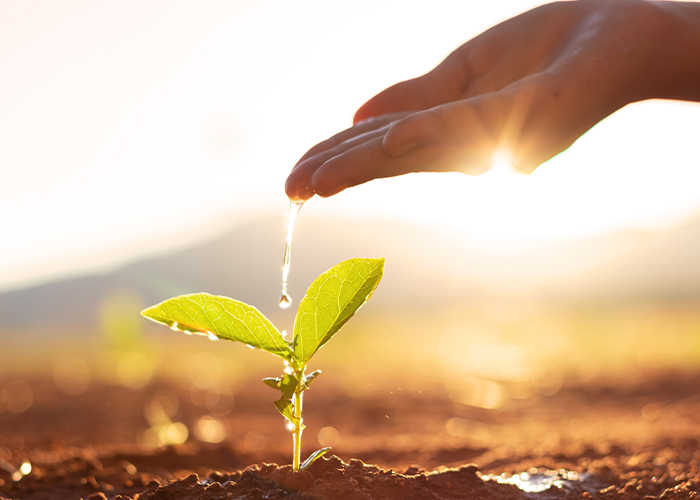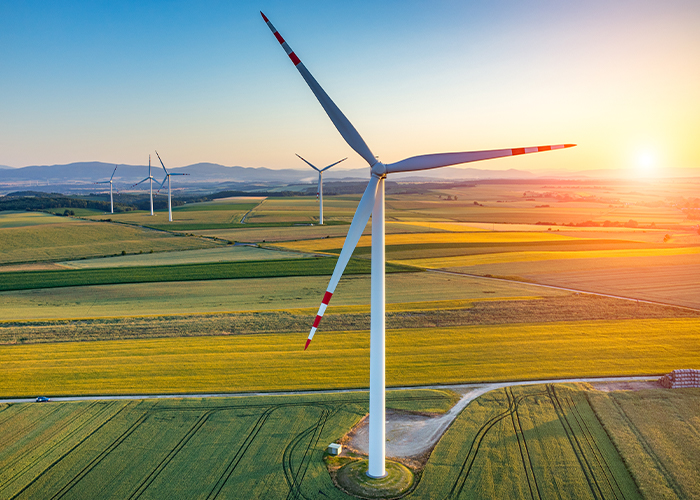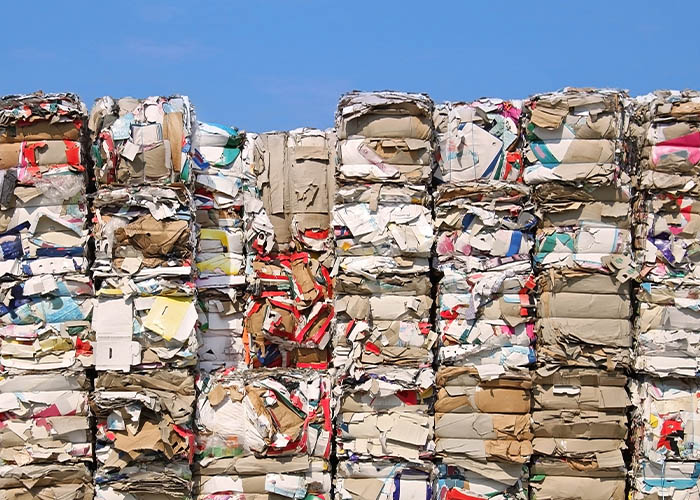Sustainable materials and production
Baser aims that its parasols and parasol bases are the most sustainable in the world.
We are actively using renewable energy in our production and recycled materials when possible.
Base: recovered fishing nets and industrial waste
Reducing ocean plastics is a crucial step in the fight for our environment. Each year, between 4.8 and 12.7 million tonnes of plastic end up in the ocean, and fishing nets are some of the most harmful.
We use Ravamid ECO to mould our parasol bases. It’s a strong and durable material made from these nets and other non-toxic industrial waste, with a UV stabilizer to maintain its colour year after year.
We have now reused more than 42 tonnes of fishing nets, so all of our customers have helped to clean our oceans. Our long-lasting products also have a 5-year spare-part guarantee to make them last even longer, reducing waste and helping you save money.
In 2022, we’ll introduce our recycling programme, where you’ll receive a voucher for our webshop when you return a Baser product to us. We’ll recycle 100% of the material into new products and close the circle.


Fabric: waterless dyes and eco-friendly processing
Each year, the textile industry uses 79 million cubic metres of water and creates 20% of the world’s industrial water pollution. With 2 billion people living in areas with low or no water, each litre we save can save a life.
Polymer textile dyes use between 100-150 litres of water per kilo. We use no water at all and 30% solar energy with zero waste in our Texsilk Olefin dyeing process. Our CO2 footprint for 2 sandbags is 0.6 kg, compared to nearly 6 kg for a polymer shirt. Less CO2 and water usage on our part means better air and water for you.
Our supplier is moving towards 100% green energy, either from sun or wind, to decrease the CO2 per product even further. We also hope to switch our water repellent from Teflon to a non-fluoridated compound. Green innovation will make this possible soon.
Energy: 100% wind power
With corporations creating literally tonnes of products every day, we need to make manufacturing sustainable. We can reduce our impact by using renewable energy to battle climate change.
China manufactures 20% of the world’s products and ships them thousands of kilometres to reach buyers. Local production using wind power can improve local economies as well as reduce pollution.
We make our parasol bases here in Denmark using 100% wind energy. Local production ensures high quality, which is key to sustainability because better products last longer. In transport, we support Europe’s low-emissions goal by creating 92% less CO2 than bases shipped from Asia.
Within the next 3 years, we hope to have a similar setup in the U.S. to serve our American friends in the same way.


Production: ethical and local
Happy employees are more productive, whether they work for us or one of our suppliers. Yes, keeping employees happy and properly trained increases labour costs, but it also results in lower defect rates and less waste, reducing overall costs in the long run.
Based in Poland, our supplier runs a well-lit factory and follows regulations faithfully. Sourcing from Europe supports the local community and offers a constant flow of goods, instead of having to wait for large containers to ship 20.000 km from Asia.
As Baser grows, we continue to search for ways to improve working conditions as well as increase production. In 2021, we aim to set requirements that all suppliers must meet, such as for safety, lighting, and noise.
Shipping: 100% recycled cardboard
The U.S. alone uses close to 100 billion cardboard shipping boxes each year. Our forests are the lungs of our planet, and deforestation destroys enough trees every second to cover a soccer field.
Although processes exist that can create cardboard from 90-100% reused material, the average box only uses 35%. We have to do better.
Our FSC-certified supplier makes our packaging out of recycled cardboard, reducing waste. Currently we ship our retail boxes in shipping boxes to avoid damage.
First, we intend to reduce the size of our retail boxes. Next, we plan to eliminate our shipping boxes. We’re working with our partners to make that happen, but we need support from you. If you can accept that your package may arrive with dents or scratches, we can make these improvements our new reality.

 FAST AND FREE SHIPPING
FAST AND FREE SHIPPING
 ONE OF A KIND PARASOLS
ONE OF A KIND PARASOLS
 BEST WARRANTY AND SERVICE IN THE MARKET
BEST WARRANTY AND SERVICE IN THE MARKET 


